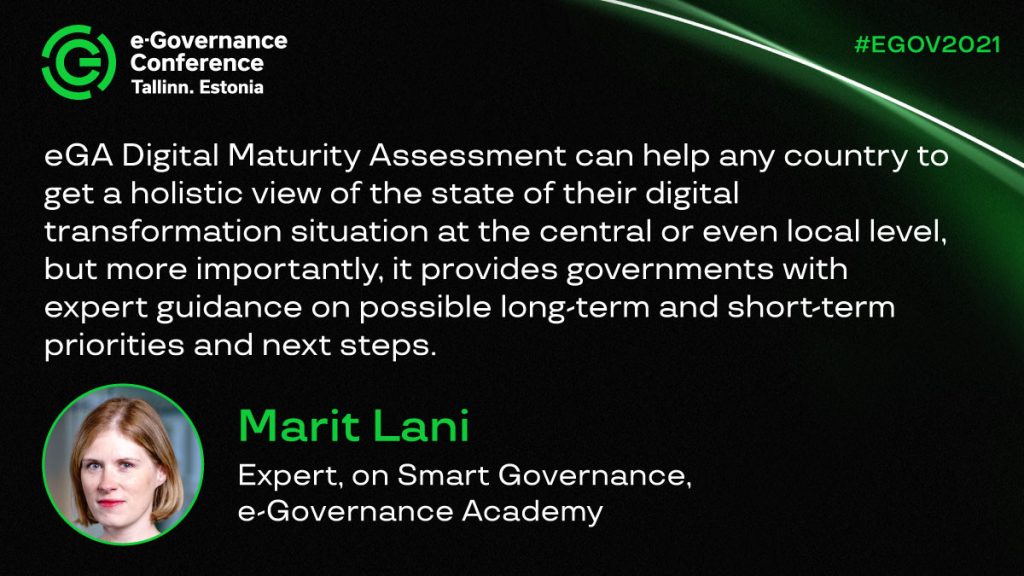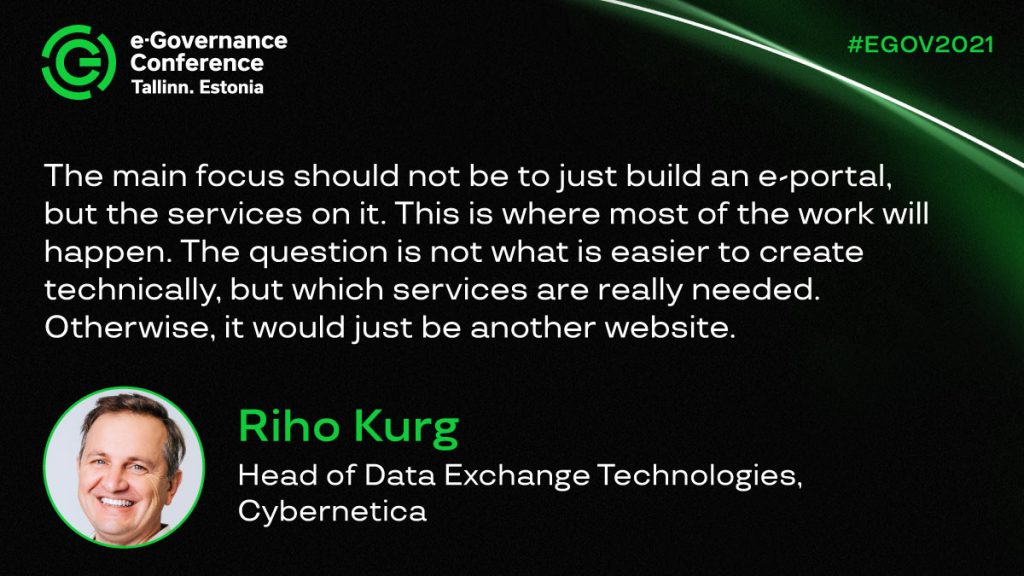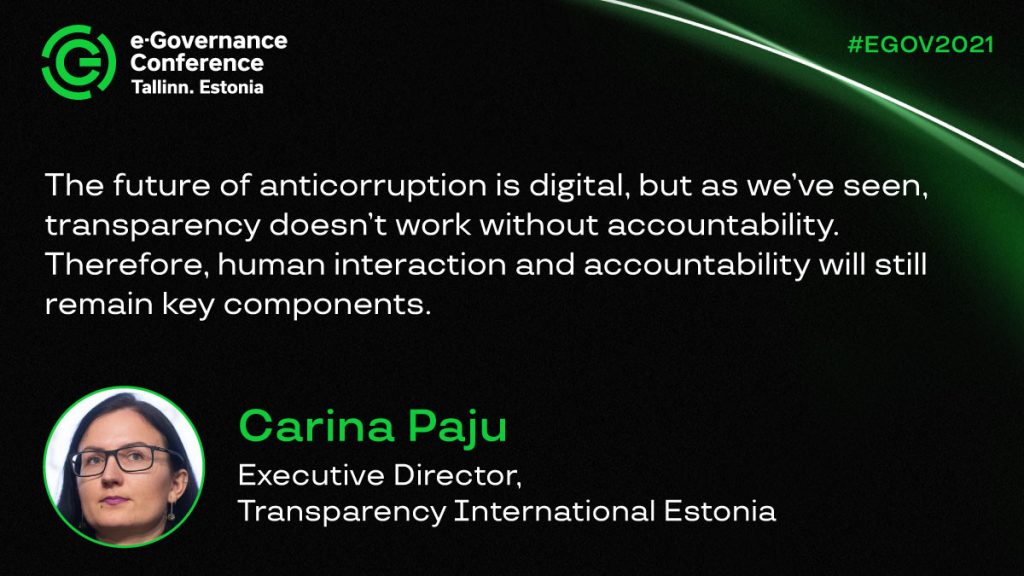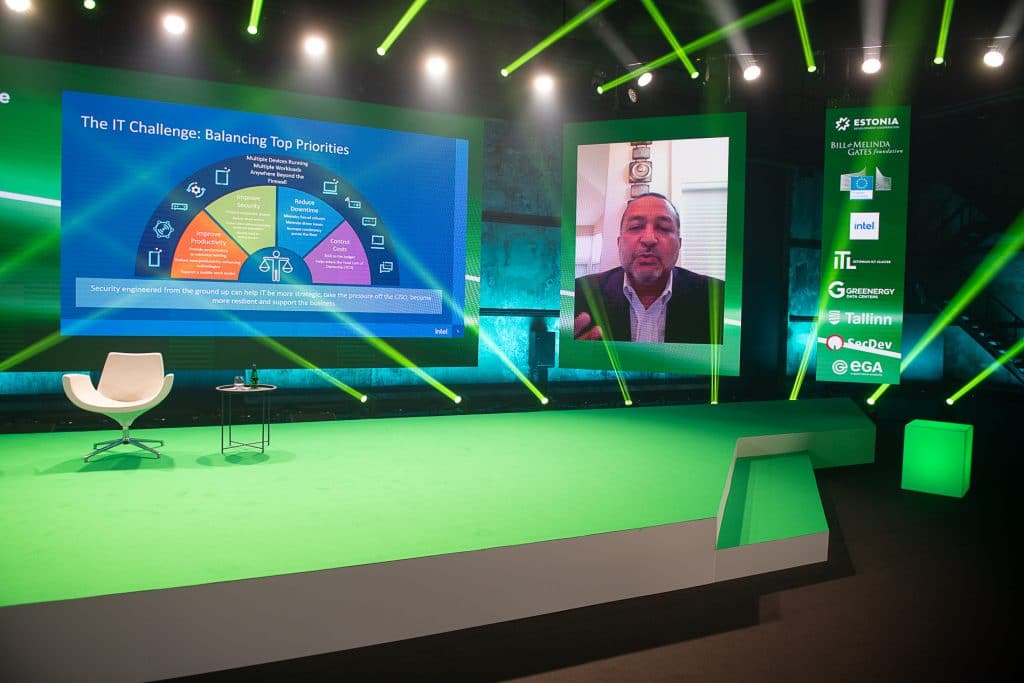Day 1: e-Government Development in Practice
May 18 marked the start of the 7th e-Governance Conference – A Digital Decade in One Year. Organised by e-Governance Academy (eGA), it is one of Estonia’s flagship events for global decision-makers and business leaders to learn and discuss digital transformation.
Due to the ongoing challenges posed by the Covid-19 crisis, this year’s Conference – from the live panel discussions to the Expo Hall – continues to be delivered online. This worldwide accessibility allowed participants to tune in from 101 countries on the first day – thank you to all the attendees for joining us!
This year’s programme reflects on the accelerated digital transformation resulting from the pandemic. Here, you can find a day-by-day review of the key takeaways delivered by the participating international expert speakers.
In Day 1, e-Government Development in Practice, the sessions guided us through various considerations for implementing e-governance and what has changed in the new normality.
Rewatch the conferene here
Digital maturity assessment as the foundation of e-government development
The Conference was kicked off with outlining the foundation of public sector digital transformation. Marit Lani, Expert on Smart Governance at eGA, shared insights from applying eGA’s Digital Maturity Assessments around the world. This universally applicable tool was created to help countries understand their current level of digital maturity, set digital transformation aims and compile a roadmap for achieving them.

The Digital Maturity Assessment captures twelve e-governance enablers – including analogue elementssuch as political will and a supporting legal framework, as well as digital factors such as secure digital identity, information security and data exchange. Based on the country’s level of digital maturity, the assessment provides tailored recommendations for short-term and long-term activities for further digital advancement.
Through the implementation of these assessments, eGA has uncovered common challenges and pitfalls in e-governance development. Lani highlighted the importance of balancing innovation with the establishment of a solid e-governance foundation. Some leaders are eager to start pursuing grand plans, while also looking to achieve quick wins. But all steps must be placed within the context of strategic development – strengthening the foundation first, before building on top of it.
Lessons on how to make data run, not people
The live panel discussion on “making data run”, explored the factors that determine the success and sustainability of data exchange solutions. As with broader e-governance development, the panellists acknowledged that a strong foundation is also important for interoperability solutions. In these projects, this is achieved through knowledge transfer and consolidating local stakeholder commitment, before developing the technology.

All speakers emphasised that political will tends to make or break many interoperability projects. Riho Kurg, Head of Data Exchange Technologies at Cybernetica, brought the example of Benin, where strong political will enabled the development of a functioning citizen portal within a year. Kurg underlined that such projects are not just about software. Considering that they also require a range of building blocks – such as citizen services, secure authentication, and various back offices – achieving results can take some countries years.
In addition to political will, successful implementation and uptake is connected to the delivery of usable citizen services. Ville Sirviö, CEO of Nordic Institute for Interoperability Solutions, cited recent findings from Tartu University, which also point to a critical number of services that ensure better outcomes. Therefore, the discussion revealed that while context varies by countries, certain elements in the formula for successful interoperability remain constant.
Strengthening e-government immunity in times of crisis
The first day of the Conference was wrapped up by discussing the institutional and technological integrityof digital systems. The session, Digital Tools in the Global Battle Against Corruption, addressed the increased risk of corrupt practices in the new normality. According to Kristina Reinsalu, Programme Director of e-Governance Academy and moderator of the discussion the pandemic has shown that in times of crisis, corruption can even take hold in countries that rank well across relative indexes. The panellists illustrated how technology can be leveraged to foster transparency and accountability, targeting various aspects of the multifaceted issue.

The past year has also seen shifts in the digital security landscape. Yasser Rasheed, Global Director at Intel, drew attention to the security implications of the extensive integration of work and personal life in the new normal. The eroding boundaries between people’s use of various devices concerns both the public and private sector. In response, Rasheed encourages the adoption of a new security paradigm, empowered by latest technological capabilities and looking beyond the basic level of protection.

The e-Governance Conference is an annual event aimed at international digital development cooperation. It has been organised by the e-Governance Academy (eGA) in cooperation with the Estonian Ministry of Foreign Affairs since 2015. This year’s e-Governance Conference – A Digital Decade in One Year – looks at the implications of the accelerated digital transformation that resulted from the pandemic. The programme provides governments with the new perspective on how to systemise the experience gained from 2020 and move forward with more sustainable digital transformation.
The conference is organised by the e-Governance Academy in cooperation with the Ministry of Foreign Affairs of Estonia, the Bill and Melinda Gates Foundation, the European Commission, Intel and the Estonian ICT cluster.